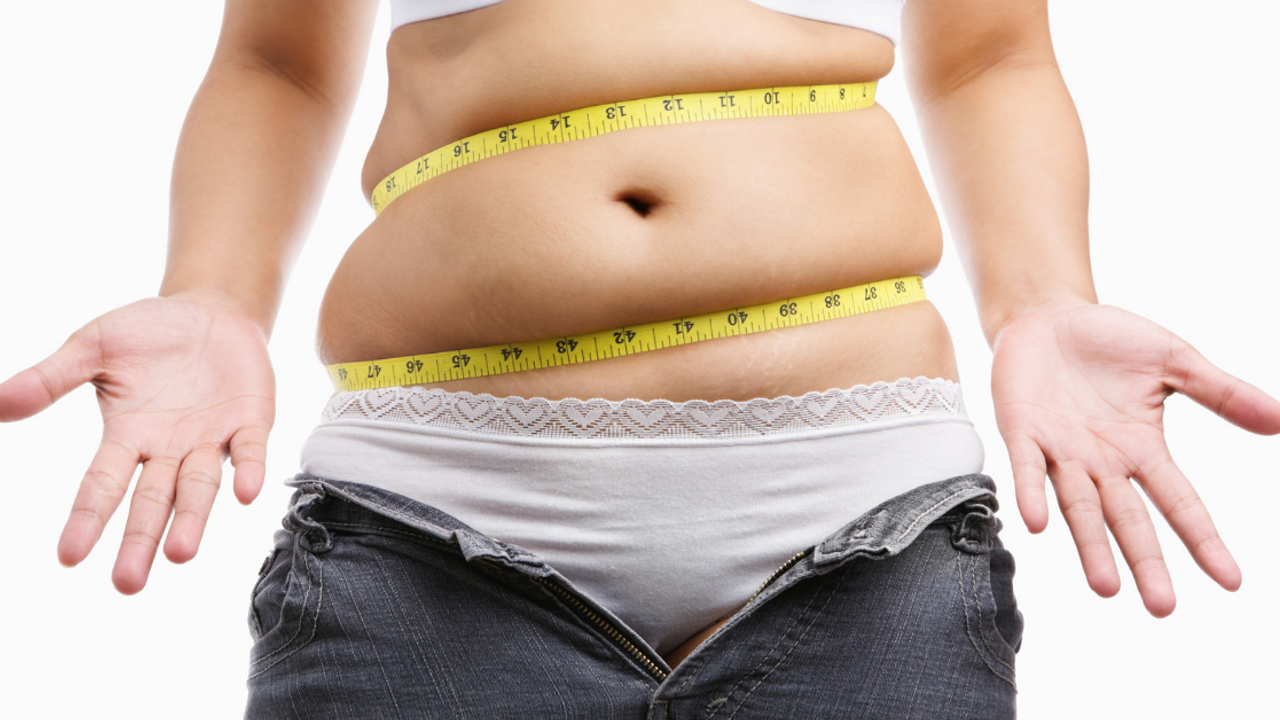Belly Fat and Menopause: What’s the Connection?
Mar 17, 2020
Weight gain, especially around the abdomen, is one of the top complaints women have when they transition into menopause. Even women that don’t gain weight, see changes in where the fat is deposited. Understanding why this weight gain occurs can help women come to terms with the biological process of menopause rather than thinking of it as something to be dreaded and battled. Women need to know that the symptoms of menopause are something all women go through, they are not alone and what is happening isn’t because of something they are doing or not doing. Let’s explore some of the reasons for menopausal belly fat and what can be done about it.
Aging
As we age, it is normal to see some weight gain. This is not something unique to women but women do see a larger increase in abdominal fat. So you’re not alone in this experience. Many different factors play a role in this. Changing hormone levels, loss in muscle mass decreased activity level, and increased caloric intake, are just a few.
Estrogen
This is the queen bee of all hormones and decreases during menopause. Why is this such a big deal? Because she controls everything!! Estrogen plays a role in endocrine, immune, and neurologic systems. That’s why when levels decrease, many women feel symptoms ranging from hot flashes, forgetfulness, depression, muscle aches, and insomnia, to name just a few. One of the biggest connections of estrogen on increased belly fat is its relationship to cortisol.
Cortisol
Studies indicate that cortisol levels rise slightly with age. Cortisol is a hormone produced by the adrenal gland when the body is under stress. It is naturally higher in the morning and tapers down as the day goes on. When the body remains under constant stress, cortisol levels remain high regardless of the time of day. This chronic stress can cause excess fat storage deep in the abdomen (visceral fat). Deep abdominal fat has greater blood flow and four times more cortisol receptors. That’s why when there is too much cortisol in your body, it goes right to your belly. The way to combat this is an inside job, there is no proof that any nutritional supplement reduces cortisol, but certain exercise modalities can have an influence on cortisol levels. For example, cortisol is increased in workouts lasting more than 40 min (mind-body exercises do not have that effect). So if you’re goal is to keep cortisol in check, keep your workouts shorter and focus on practicing more mindful workouts such as yoga.
Estrogen - Cortisol Connection
Estrogen has anti-cortisol properties, which help the body counteract some of the negative effects of cortisol. So as estrogen decreases, so do its cortisol-fighting superpowers. This means that if your body was able to handle some of the excess day-today-stress before, it may not be able to handle it quite as well now, which translates into excess belly fat.
Sleep
Sleep has a key role in supporting a wide array of the body’s hormones and metabolism. Chronic sleep deprivation is often a factor in obesity. This is caused by several factors. First of all, people that sleep less tend to eat more because they have more time to eat and also tired individuals tend to eat more to combat exhaustion. Secondly, research indicates that sleep affects two important hormones that are related to appetite: ghrelin and leptin. Ghrelin, which increases appetite, is higher with lack of sleep, and leptin, which decreases hunger is lower with lack of sleep.
What Can Be Done About Belly Fat?
You cannot spot-reduce belly fat. There are, however, some practical things you can do to shed fat overall and improve your health.
- Reduce your body’s physiological response to daily stressors. Learning how to cope with stress, is essential to controlling weight gain, belly fat, and overall health and well-being
- ( yoga, Tai Chi, meditation, deep breathing techniques)
- Utilize resistance training to build muscle mass.
- Rev up your exercise routine with high-intensity interval training (HIIT) (keep it under 40 min)
- Eat healthy. Keep your fat intake under 20 percent, with most of it coming from good fats such as olive oil, fish, or avocados.
- Sleep 7-9 hours per night!!!
As we age, we are faced with many physical changes that affect us not only physically but also psychologically and emotionally. As women, those changes are exacerbated during menopause. Understanding these changes is a key factor in being able to overcome these challenges and transition happily through menopause. In regards to increased belly fat, you must remember that weight gain doesn’t happen overnight and it doesn’t start with menopause. Don’t wait until you’re unhappy with your body...live healthy now: exercise, eat well, sleep more, find a good balance between work & personal life, and enjoy the smaller things in life. Most importantly, Chill Out!!!



